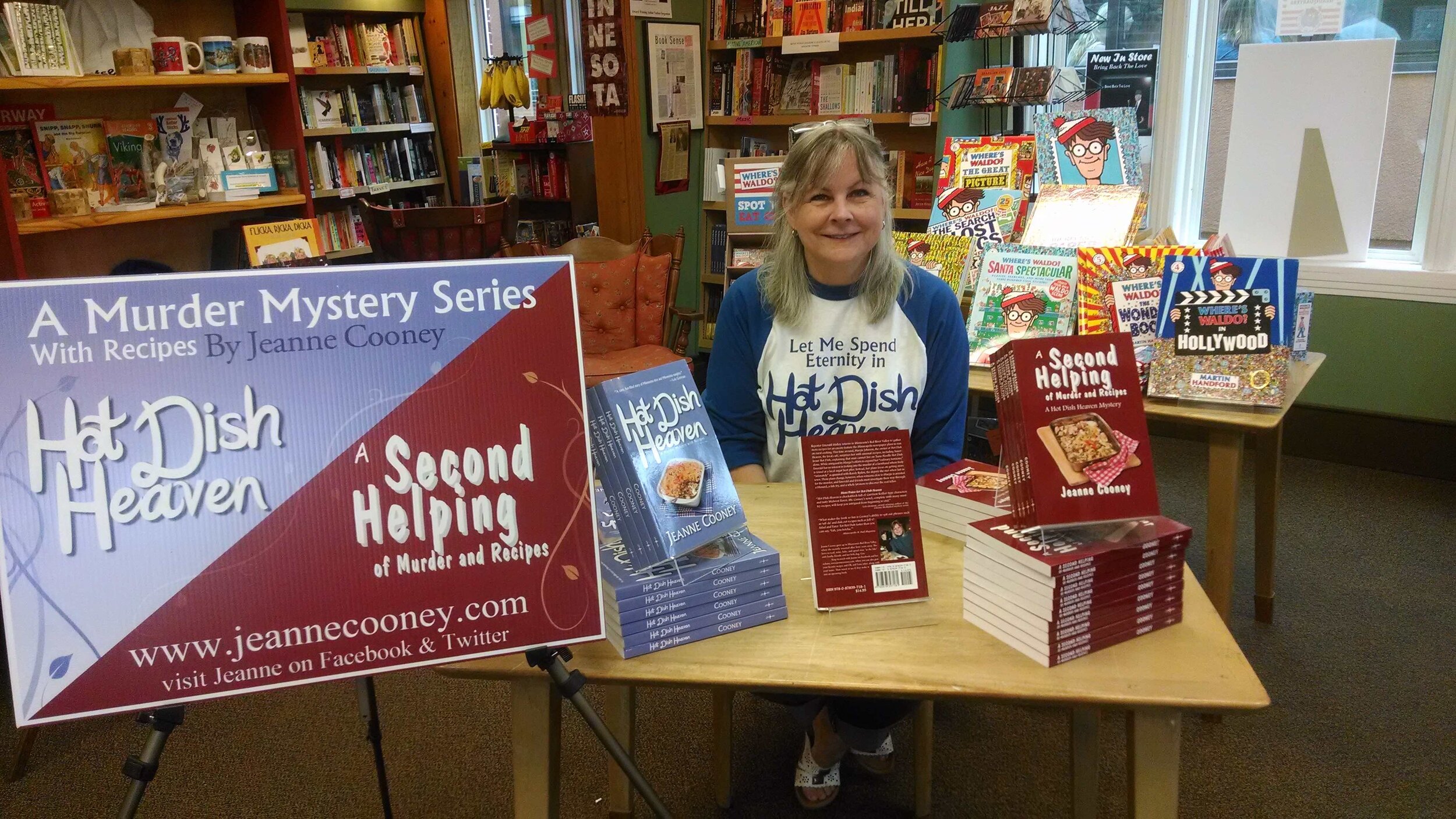Jeanne Cooney
651-757-7567
jeannecooney@ymail.com
www.jeannecooney.com
Jeanne lives in Hallock.
Writing can be fun and funny! Jeanne uses humor to reach new fiction writers. She focuses on teaching students how to create interesting characters and settings by using imaginative descriptions, including similes and metaphors. For example: His lie left a bad taste in his mouth. Or, she grew on him like she was bacteria and he was room-temperature hamburger. Okay, maybe not that last one. But, you get the idea. She also looks at character-driven plot development, the use of scenes to move a story forward, and realistic dialogue.
Jeanne is the author of the Hot Dish Heaven murder mystery series, published by North Star. The three books are humorous mysteries set in her hometown of Kennedy – that include recipes for tater-tot hot dish and seven-layer bars! Her books have garnered positive reviews by Mpls. St. Paul Magazine and Midwest Book Review; and have been featured on Minnesota Public Radio and in the Minneapolis Star Tribune. All three have hit No. 1 nationally on Amazon in the “rural humor” category.
RESIDENCY
Funny You Should Ask: How to Write with Humor
Intended for junior and senior high students (and adults)
“The main point of my residency is to get participants to loosen up and laugh and enjoy writing humorously while I teach them practical skills in creative writing. Students also will look at the “Rule of Three” and how adhering to that rule will improve all of their writing, not just their humor writing. Students will analyze the thoughtfulness and offensiveness of various types of humor and the need to adapt their writing for different audiences. ”
Jeanne’s goal is to strengthen students writing and their ability to convey imagined experiences to others.
During the residency Jeanne will stress critical analysis:
challenging students to expand their vocabularies by examining word choices and nuances
challenging students to become aware of an array of descriptors,from similes and metaphors to puns and exaggerations
helping students recognize…
consistency in style and tone
parallel construction
word and phrase placement
conciseness
In the end, students will display enriched examples of writing. Students will demonstrate a better understanding of appropriate humor. They will have more confidence in their writing, and greater joy in the process.

